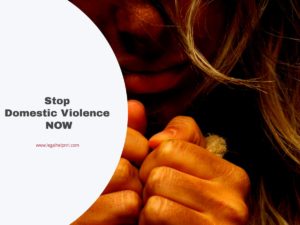 Violence against women in India is a serious problem. The Protection of Women from Domestic Violence Act 2005 defines domestic violence as any act, omission or commission or conduct of the respondent, which includes threat or actual abuse. The women are told in India to not complain about any difficulty they face by their own families and any woman who gathers the courage to complain is looked down upon by the members of her community. In most of the cases the victim is asked to tolerate all the abuse as a part of her karma. In India around two- third of married women are victim of domestic violence and 70 percent of married women in India between age 15-49 have experienced physical violence and sexual violence, victim of beating, rape. In India more than 55 percent women suffer from domestic violence, especially in the states of Bihar, U.P., M.P. and other northern states. There are the many cause for domestic violence like cultural, economic, legal, political and historical causes. 50 women’s in lucknow were interviewed to get appropriate result. The study showed that alcoholism of the spouse is one of the main cause of domestic violence against women’s. In some cases inability of women to get pregnant, greediness for dowry, desire for a male child is also leads to their assault by the family members. There have been horrible reports of young bride being burnt alive or subjected to continuous harassment for not bringing home the amount of demanded dowry. Women in India also admit to beating because of their suspicion about the husband’s sexual involvement with other women.
Violence against women in India is a serious problem. The Protection of Women from Domestic Violence Act 2005 defines domestic violence as any act, omission or commission or conduct of the respondent, which includes threat or actual abuse. The women are told in India to not complain about any difficulty they face by their own families and any woman who gathers the courage to complain is looked down upon by the members of her community. In most of the cases the victim is asked to tolerate all the abuse as a part of her karma. In India around two- third of married women are victim of domestic violence and 70 percent of married women in India between age 15-49 have experienced physical violence and sexual violence, victim of beating, rape. In India more than 55 percent women suffer from domestic violence, especially in the states of Bihar, U.P., M.P. and other northern states. There are the many cause for domestic violence like cultural, economic, legal, political and historical causes. 50 women’s in lucknow were interviewed to get appropriate result. The study showed that alcoholism of the spouse is one of the main cause of domestic violence against women’s. In some cases inability of women to get pregnant, greediness for dowry, desire for a male child is also leads to their assault by the family members. There have been horrible reports of young bride being burnt alive or subjected to continuous harassment for not bringing home the amount of demanded dowry. Women in India also admit to beating because of their suspicion about the husband’s sexual involvement with other women.
Domestic Violence includes the abuse of the following types:
- Psychological/Emotional abuse
- Physical abuse
- Sexual Abuse
- Financial Abuse
- Cultural abuse
The Protection of Women from Domestic Violence Act came into on 2005. Under this act 37 Sections and 5 chapters, was lauded as an essential change in the kind of legal protection provided to women by the law. The other important facet of the act is the provision for a Protection Officer. In India women generally stay away from the police and the courts because their own families not encouraging them to raise their voice against violence. Under this act a Protection Officer is provided so as to aid the victim with legal procedures and support, including medical assistance and counselling. The aggrieved women can complain to the Protection Officer in event of further incidences after which the Protection Officer prepares a Domestic Incident Report on the basis of which necessary action is taken. The order is granted under Section 18 of the act which can direct the respondents from not committing any other acts of violence against the complainant.
